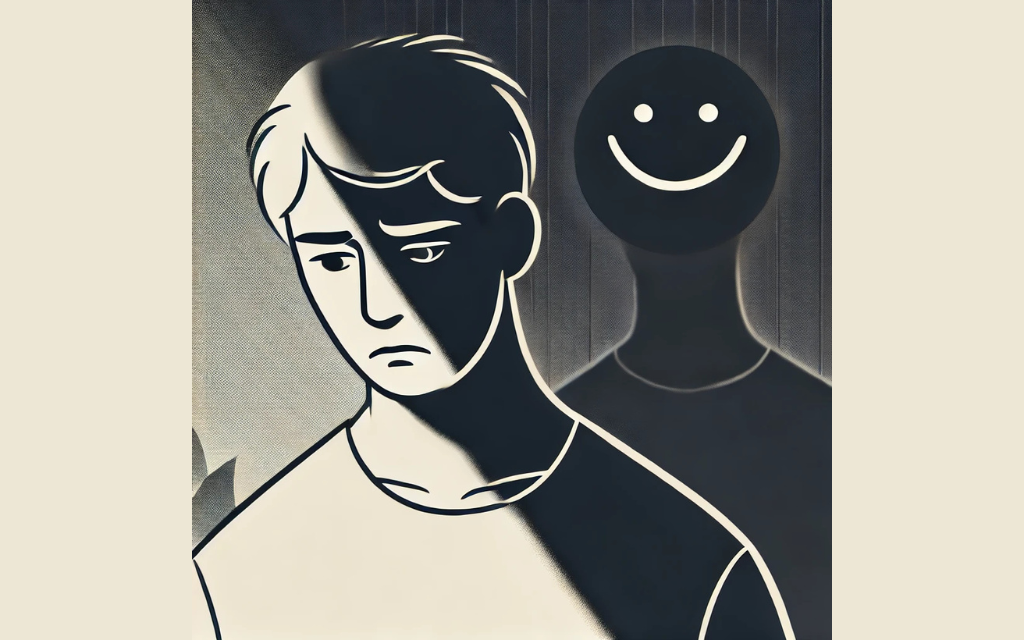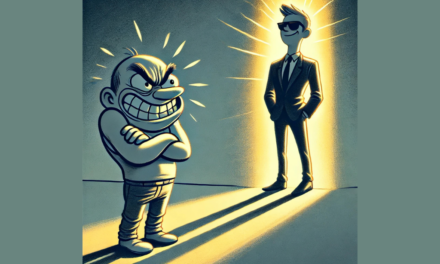We are increasingly confronted with the phenomenon of envy. It’s not a new thing, it used to be common, but social media has amplified it. It encourages constant trolling and judgement, and instead of overcoming feelings of envy, we tend to criticise others. Of course, social media can also make us believe that this is normal. Unfortunately, a nasty comment, a disparaging aside or a passive-aggressive reaction is now commonplace and pervades the minds of many. We can assume that not many people write “today I will face my envy” on their daily to-do list. But it would be more useful than we think, because envy is an invisible poison that eats away at self-esteem, contentment and joy without you noticing.
Research shows that envy has two faces. One can be inspiring, the other can be toxic. According to Smith and Kim (2007), envy can be constructive, when it is used as a motivator, or destructive, when we would rather the other person’s success did not exist.
How envy works – why is it imperceptible?
Suppose you have a faithful old car. Let’s call him Rozi. Rozi has seen a lot. It’s got a bit of a sooty exhaust, it makes a weird noise sometimes, and when you start it up, you always feel like you’re entering a lottery draw: will it start or not today? But you ‘ll stick it out, because you can’t afford a new car right now. And then the fateful day arrives. You pull into the parking lot at work and there’s Casimir, your colleague, who’s been in the same pay bracket as you but this morning is rolling in in a brand new, shiny, shiny, premium-finish SUV. He gets out of it so slowly that time stands still and even the sun shines on him differently. Everyone notices.
“Nice ride! How much was it? ” – someone asks.
Kazimierz laughs and says: “Ah, it’s nothing. Family help. And, well, I was a little off. “
BAMM. This is where the emotional tsunami, the inner downward spiral begins . At first it’s just a small, unpleasant feeling. You can’t really put it into words, it’s just there. A vague tightness that you hide behind your smile as Casimir confidently tells you how smoothly his new car is running.
Then the involuntary narrative starts in your head. First you make up explanations in your head, then you dig deeper into why it’s not a big deal, and why there’s no reason to be jealous. But still, there’s something inside you…
In the end, you don’t even try to suppress it. The little jabs, the slight sarcastic remarks are all there to somehow put your sense of justice in its place, to somehow escape the feeling that someone else might be better off than you.
Let’s take a closer look at how this process takes place in the context of Casimir’s new car, and what thoughts and emotions may accompany it.
Phase 1 – Self-verification
“Sure, family help… It’s easy!”
“But no one ever gave me anything!”
“I could buy one of these if I didn’t have to pay my mortgage!”
Second phase – Silent puffing
You start to rationalise why the car is not that good.
“Too big, difficult to park.”
“They’ll scratch it up in the parking lot anyway, and then you can watch.”
“I wonder how long he can keep up the repayments!”
Third phase – Passive aggression
While everyone else is enthusiastically looking around the car, you’re just making a casual comment:
“Well, I wouldn’t pay that much for a car like this, but you can’t put a price on that…”
“When the electronics fail, it will cry.”
“Well, some people just have everything fall into their lap.”
This is how envy works. It’s not necessarily obvious or obvious, nor do you necessarily experience it as being envious. We rarely say to ourselves “I am envious”. Of course, some people are more reflective and better able to recognise envy in themselves. But in most cases, envy remains hidden, but rather a feeling of anger, frustration or dissatisfaction appears.
For example, when someone loses weight, many people don’t think “I could work on my body”, but “It’ll put weight back on anyway, you’ll see.” or “He’s got a sunken face, he looks better with more weight”. It is also the case that the envious person does not reflect on the person’s weight loss achievements, but instead comments on how unassuming their hair looks in the photo. In such cases, envy takes the form of a disguised form, typically as some form of criticism, cynicism, indifference or contempt.
Why does Kazimierz’s new car bother us?
One of the driving forces of envy is a sense of injustice. According to J. Stacy Adams’ Theory of Fairness (1965), people tend to compare their own efforts and rewards with those of others. If we feel that someone has got ahead through less work or less luck than we have, this creates tension in us because of a sense of unfairness.
This inner tension leads to self-justification (“But nobody ever gave me anything!”), to chubbiness (“They’ll scratch you in the parking lot anyway, you can watch.”) and to passive aggression (“Well, some people just drop everything in their lap.”). One’s sense of justice demands that the world be ‘fair’ – and if it isn’t, we either admit that someone else was cleverer or luckier than us, or we look for an explanation that makes us feel better.
Our ego doesn’t really like to admit that someone else is better than us, any more than it likes to admit that someone else’s success is hurting us. Therefore, as a defence mechanism, typical self-justification thoughts like.
This thinking, of course, does not harm the Casemeres, but ourselves. These thoughts help to maintain our self-worth, but they also distort reality. Instead of looking to the success of others as inspiration, we spend our energy on self-justification, and in the process, we imperceptibly hinder our own progress.
Modern catalysts of envy
In 1954, social psychologist Leon Festinger created the Social Comparison Theory, which states that people tend to compare their own abilities and situations with those of others to gauge where they stand. This is a natural mechanism that helps self-assessment and learning. The problem is that in today’s digital age, this can be easily distorted. Because of social media, this comparison is often made with unrealistic images on the one hand, and on the other, the comparison has become endless.
Impact of social media
You get a 24/7 window into the perfect life. Meta, Insta, TikTok – all full of filtered, idealised lives. You can scroll through happy people all day long. One is wildly successful, another is sipping a cocktail on a sandy beach, David is posing with his brand new car, and Esther just shared a photo with the caption “I said yes”. Meanwhile, what about you? Well, you might be on a tram on your way to work, it’s raining and you haven’t had time to drink your morning coffee anyway. The comparison automatically kicks in and you start to feel bad about it all.
Consumer society
In today’s modern world, you’re constantly being told that you’ re “not enough ” – not successful enough, not cool enough, not pretty enough, not rich enough, not skinny enough, etc. That’s what the ads and influencers are building on – there’s always a new phone, a new fashion trend, a new car, a new whatever, and if you don’t have it, you’re behind. Let’s say Kazimierz watches a video of a tech-influencer testing out the new iPhone in a luxury car, and in the process tells you that this is the real premium lifestyle. Kazimierz’s brain immediately compares this to his own reality – 4-year-old phone, 15-year-old car, small apartment. The result? Well, the result is an inexplicable and overwhelming feeling: “Why don’t I live like this?”
Examine your own feelings
- 1. How many times have you felt that someone else’s life is “better” by browsing social media?
- 2. How often do you think “how easy it is for him”?
- 3. Have you ever looked not at your own life, but at what others are doing?
A sense of global competition
Today’s man’s day is full of invisible competition. In the past, competition was much more local. But today you can see successful people from all corners of the world. There is always someone younger, faster or more successful than you, and somehow it never ends. The success stories are endless, they’re everywhere, and very few people post about how much failure and hard work is behind it – so the envy is stronger. The trap of constant comparison is that you can always find someone more successful, more beautiful, richer or happier than you. And unless you consciously do something about it, envy slowly erodes your sense of control over your own life.
So envy is insidious. We often don’t even recognise it in ourselves, yet it affects our decisions, our self-worth and our happiness. But how do we get out of it? How can we manage this feeling more consciously? You can read my article on this here: dealing with envy | 5 tricks to stop it poisoning your life









